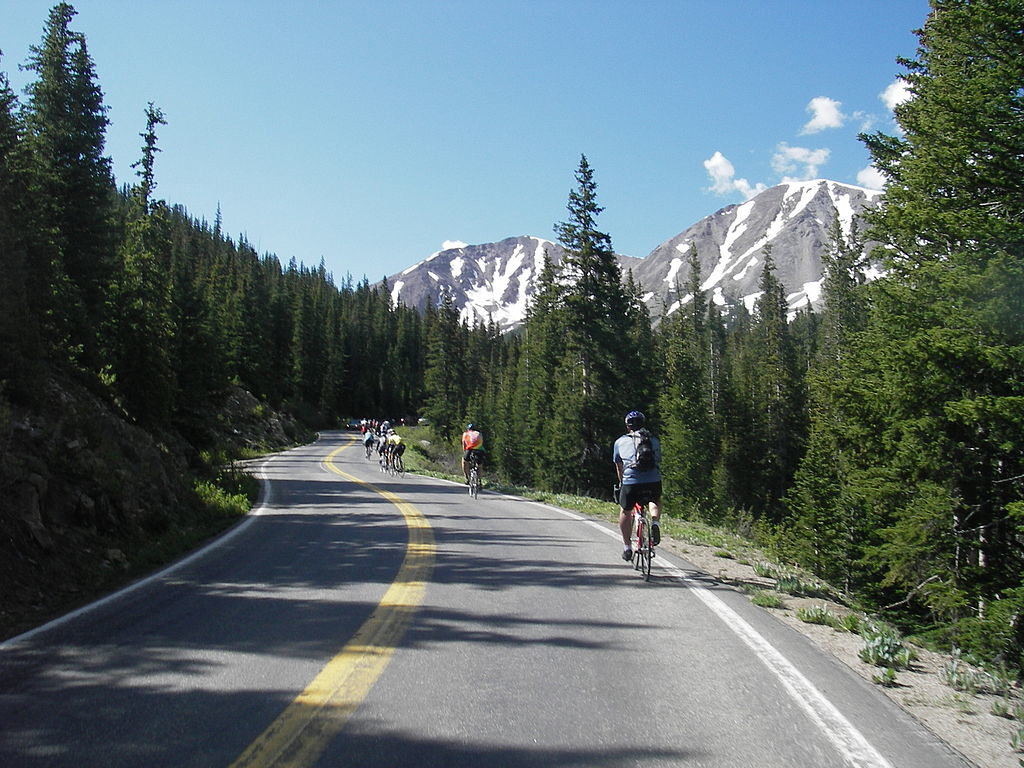The Local newsletter is your free, daily guide to life in Colorado. For locals, by locals.
Whether you’ve already signed up for an upcoming organized bike ride or simply want to increase your stamina, here are some tips to get you pedaling farther and faster—and have more fun while doing it.
Gradually increase your mileage. You should start training about 12 weeks in advance of a big cycling event, says Hugh MacEachran, a master personal trainer at the Colorado Athletic Club-Denver Tech Center and the 2000 National Tandem Time Trial Champion. Gradually increase your time in the saddle so that you reach the duration of the event two weeks in advance. Long, slow weekend rides will train your body to use fat and help your muscles to build the necessary capillary density.

Join some group rides. During the week, join an after-work group ride, which nearly every neighborhood has, says MacEachran. Not only are group rides more fun than going it alone, but the group’s collective power also pushes you harder than you would on your own. Group rides are typically divided into several ability levels, and experienced riders within in the beginners’ group will surely explain the fundamentals, like how to stay out of the wind and how to keep your wits about you in a pack, he says.
Include cross training in your schedule. Stay well-rounded and avoid repetitive motion injures by including one or two weightlifting classes per week in your routine, along with an occasional yoga or Pilates class. These activities will help your body remember how to move like a human—not just like someone who sits on a bike, says MacEachran.
Learn how to rest. When MacEachran raced as a pro, his major breakthroughs came not when he learned to train harder, but when he learned to rest more. Find out what works best for you by experimenting. A good rule of thumb is to start with two days on, one day off. As you become more fit, your body will recover faster.
Ride as far as the event you’re training for. MacEachran advises cyclists to complete the event’s full distance at least once prior to the big day. It’s both mentally and emotionally empowering to know that you can do it, and it also allows you to rehearse your routine and adjust things like your equipment, he says.
Don’t forget to eat and drink. Before you head out on a long ride, stuff your pockets full of food and start eating within the first 30 minutes. Then continue to eat a little something every 15 minutes until you run out of food—or get home, says MacEachran. For hydration, the general rule of thumb is to drink one bottle of water per hour.
Consider personal training. A trainer can recognize where you are now, where you’d like to go, and how to get there, says MacEachran. It’s important to select a trainer you can relate to—someone who understands where you are in life and what’s important to you. Most importantly, meeting face-to-face with a trainer holds you accountable, he says, which greatly increases the chances that you’ll accomplish your goals.
(Read about five upcoming Colorado rides to start training for)








